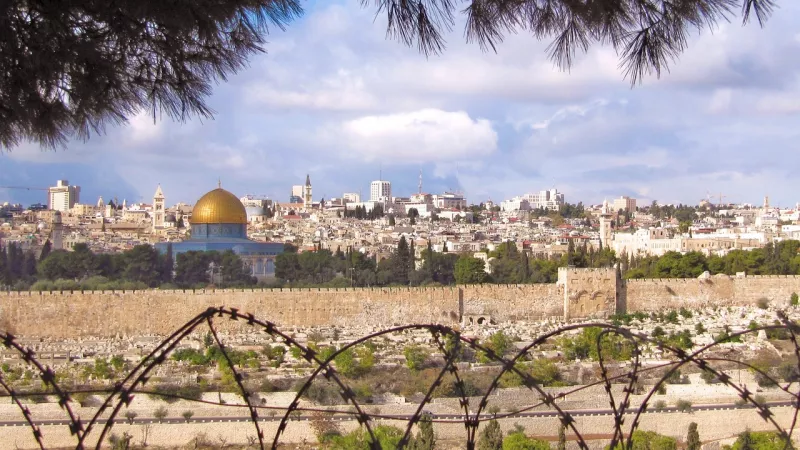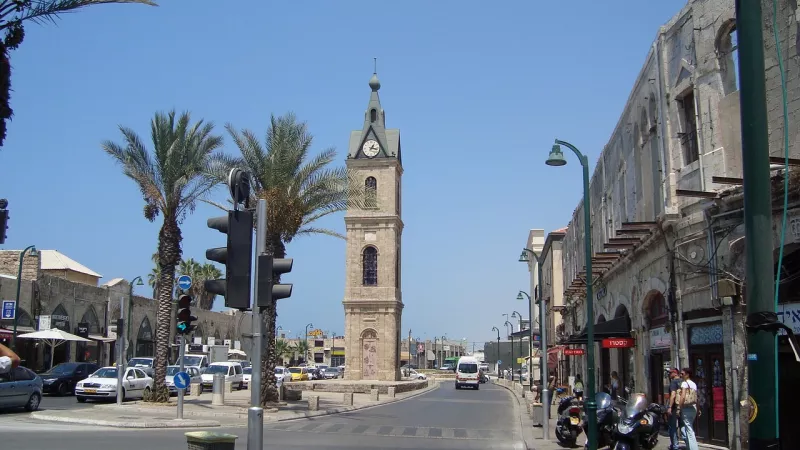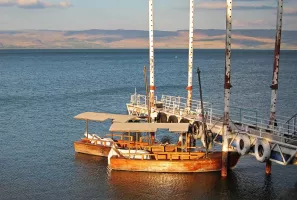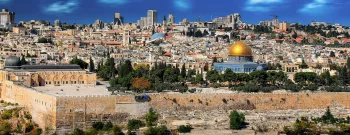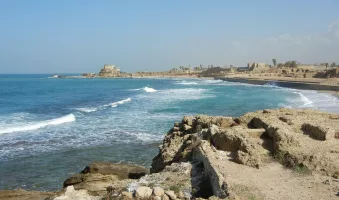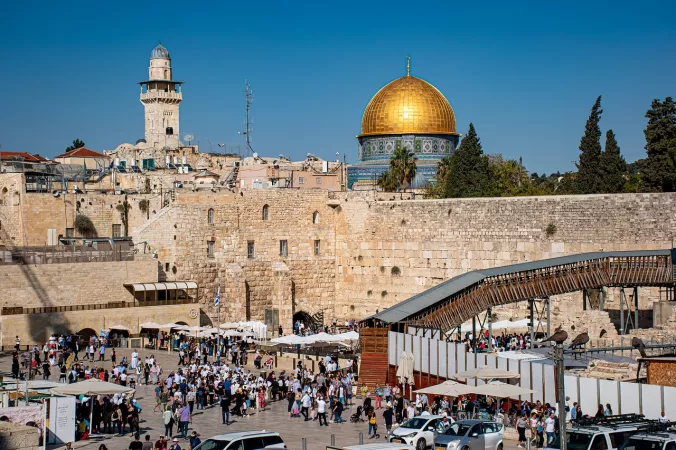
Israel
Duration
7 to 10 Days
7 to 10 Days
Best time to visit
Apr-May, Sep-Oct
Apr-May, Sep-Oct
Theme
Religious, Heritage
Religious, Heritage
Israel Travel Guide
Israel, located in the Middle East, is a country rich in history, culture, and religious significance. Known as the Holy Land, it is a land of ancient ruins, stunning landscapes, and diverse ethnicities. Israel is famous for being the birthplace of three major world religions: Judaism, Christianity, and Islam.Top Attractions in Israel
1. Jerusalem's Old City 2. Dead Sea 3. Masada 4. Tel Aviv beaches 5. Sea of Galilee 6. Yad Vashem Holocaust Memorial 7. Bahá'í Gardens in Haifa 8. Negev Desert 9. Acre (Akko) 10. Caesarea National ParkIsrael is Famous for
Israel is most famous for its historical and religious significance, including sites like the Western Wall, the Church of the Holy Sepulchre, and the Dome of the Rock.Top Attractions in Israel
- Jerusalem's Old City - Dead Sea - Masada - Tel Aviv beaches - Sea of GalileeWhat's Great about Travelling to Israel?
- Rich history and culture - Diverse landscapes from desert to beach - Unique religious sites - Vibrant food scene - Warm and welcoming localsWhat's Not So Great about Travelling to Israel?
- Security concerns in some areas - High cost of living - Language barrier in some regionsTravel Tips for Israel
- Check visa requirements before traveling - Use public transportation or taxis for getting around - Respect local customs and traditions - Stay informed about the current political situationImportant Israel trip information
- Ideal Duration: 7-10 days to explore the major attractions.
- Best Time to Visit: Spring (March-May) and Fall (September-November) for pleasant weather.
- Nearby Airports and Railway Stations: Ben Gurion Airport in Tel Aviv is the main international airport. Haifa and Tel Aviv are major railway hubs.
Top 2 Places to visit in Israel
Per Person
21,980
*EXCLUDING APPLICABLE TAXES Per Person
18,500
*EXCLUDING APPLICABLE TAXES Per Person
21,800
*EXCLUDING APPLICABLE TAXES Per Person
23,500
*EXCLUDING APPLICABLE TAXES Per Person
23,570
*EXCLUDING APPLICABLE TAXES Per Person
22,340
*EXCLUDING APPLICABLE TAXES FAQ's on Israel
Q1: What is the best time to visit Israel?
The best time to visit Israel is during the spring (April and May) and autumn (September and October) when the weather is mild, and there are fewer tourists. Summer (June to August) can be hot, especially in the desert areas, while winter (December to February) can be rainy. Consider visiting during major Jewish holidays like Passover or Hanukkah for a unique cultural experience.
Q2: Do I need a visa to travel to Israel?
Most tourists don't need a visa to enter Israel for stays up to 90 days. However, some nationalities may require a visa, so it's best to check with the nearest Israeli embassy or consulate before your trip. Ensure your passport is valid for at least six months beyond your intended stay.
Q3: What are the must-visit attractions in Israel?
Israel is home to numerous must-visit attractions, including the Old City of Jerusalem, the Dead Sea, Masada, Tel Aviv's beaches, the Sea of Galilee, and the ancient city of Caesarea. Don't miss the vibrant markets like Mahane Yehuda in Jerusalem and Carmel Market in Tel Aviv.
Q4: Is Israel a safe place to travel?
Israel is generally safe for tourists, but it's essential to stay informed about the current political situation. Avoid areas near the Gaza Strip and West Bank, and follow local news for any security updates. Exercise normal safety precautions, be aware of your surroundings, and respect local customs.
Q5: What is the local currency in Israel and can I use credit cards?
The local currency in Israel is the . Credit cards are widely accepted in major establishments, but it's advisable to carry some cash for smaller vendors or markets. ATMs are easily accessible in cities and tourist areas for currency exchange.
Q6: What is the local cuisine like in Israel?
Israeli cuisine is diverse, influenced by Middle Eastern, Mediterranean, and European flavors. Enjoy dishes like falafel, hummus, shakshuka, and fresh seafood. Dietary restrictions are accommodated, with many restaurants offering vegetarian and kosher options. Don't miss trying local street food and visiting bustling food markets.
Q7: What transportation options are available in Israel?
Israel has a well-developed transportation system, including buses, trains, and shared taxis (sheruts). Renting a car is a convenient way to explore the country, especially if you plan to visit remote areas. Taxis and ride-sharing services are also available in major cities like Tel Aviv and Jerusalem.
Q8: Are there any cultural norms or etiquette I should be aware of when visiting Israel?
When visiting Israel, it's important to respect local customs and traditions. Modesty is appreciated when visiting religious sites, and it's customary to greet people with a handshake. Dress modestly in religious areas, and be mindful of Shabbat (the Jewish Sabbath) when many businesses close from Friday evening to Saturday evening.
Q9: I am a travel agent. How can I buy travel leads of Israel?
Register yourself as a travel agent at agents.tripclap.com and then you can buy travel leads to Israel once your account is approved. For more details contact our support team at +91-8069186564 or support@tripclap.com
